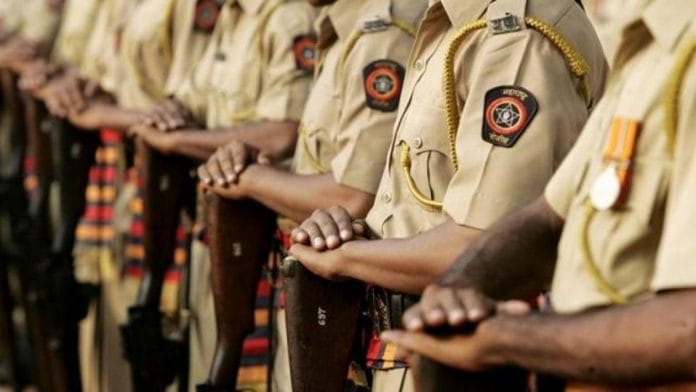The three new criminal laws – Bharatiya Nyaya Sanhita, Bharatiya Nagrik Suraksha Sanhita, and Bharatiya Sakshya Adhiniyam – were all rolled out about three months back. There was considerable apprehension that there would be confusion at the police station level in the registration of cases. And with the Indian Penal Code and BNS running simultaneously for the next one or two decades, the investigators, prosecutors and even the judiciary would face problems. However, these appear to have been belied.
Indians, it would seem, have a genius to adapt to changes that seek to bring about transformations aimed at modernisation. We changed over from miles to kilometres and pounds to kilograms without any hassles.
One key reason for introducing these new criminal laws, as cited by Union Home Minister Amit Shah, was that the old codes were drafted by the British. Therefore, it was necessary to have a decolonised, Indian version of the laws that would reflect the country’s ethos and values.
1861 police Act still in the statute book
The Narendra Modi government’s efforts, let us admit, are laudable. However, what one fails to understand is that the Police Act of 1861 is still in the statute book. This Act, legislated by the British in the wake of the Revolt of 1857, provides the framework of police organisation and operations. The British needed a force that would be at their beck and call and effectively quell any disturbance or rebellion against the imperial authority.
They wanted, as the minutes preceding the formation of the Act show, a “politically useful” police. The British cannot be blamed for having raised such police. They were here to rule and not promote the welfare of the people. What is incomprehensible is that such an Act has continued to exist even 77 years after Independence. Every party in power found it convenient insofar as it enabled them to further their political agendas.
In 2005, the Indian government appointed a Police Act Drafting Committee under the Chairmanship of Soli Sorabjee, a former Attorney General.
The committee produced the Model Police Act 2006, which could have been enacted by the Government of India for Union Territories, and recommended for adoption by the state governments. States where the same party was in power would have followed suit. Out of the remaining states, some may have shown reservations, but they could have been persuaded or given incentives to adopt the Model Police Act. Such an effort would have ensured broad uniformity in police Acts across the country.
Besides, Article 252 of the Constitution gives Parliament the power to legislate for two or more states by consent. It lays down that such an Act shall apply to the consenting states and to any other states that adopt it through a resolution passed by the House or, where there are two Houses, by each of the Houses of the legislature of the state. This provision could also have been utilised to have one Police Act for the entire country. Unfortunately, nothing of the kind was done. Sorabjee’s Model Police Act was shelved and the government remained an unfortunate spectator to states’ dubious methods for circumventing the implementation of the Supreme Court’s directions on police reforms.
Also read:
One Nation, One Police
As a consequence, we have myriad police Acts passed by different states. Seventeen states have passed new laws, ostensibly in compliance with the Supreme Court’s directions. However, an analysis of the Acts shows that they were actually enacted to give legal cover to the existing arrangement, and meant to circumvent the implementation of judicial directions.
It is a very uncomfortable thought that the British showed greater vision in having a single Police Act for the entire country. More than 160 years down the line, our vision is blurred by petty political considerations.
The new criminal laws may be fine. However, as long as the Police Act of 1861 remains on the statute book, or as long as its spirit continues to be reflected in the new police Acts legislated by state governments, it would be futile to expect any significant change in the enforcement of laws. The colonial spirit will continue to haunt the day-to-day functioning of the police. What we have today is a ‘ruler’s police’, but what we need and must have is a ‘people’s police’.
If the government wants the police to reflect the democratic aspirations of the people as well as Indian ethos, it is absolutely essential, as has been recommended by the National Police Commission, for it to be insulated from outside pressures. It is the government’s prerogative to lay down policies and define objectives that the police should try to attain. But beyond that, the police should have full autonomy in its day-to-day functioning.
This was one of the core directions of the Supreme Court, which suggested the setting up of a State Security Commission for the purpose. The commission was to serve as a shock absorber between the government and the police. It was to ensure, on one hand, that the government would not interfere in the police’s routine functioning, and on the other, that the police did not transgress the limits of the law. Some states have constituted such a commission, but its composition has been diluted and powers severely curtailed. As such these bodies would not be able to play the role mandated by the Supreme Court.
The Modi government has been laying great stress on ‘one nation, one election’, which is a step in the right direction. But why is there no talk of ‘One Nation, One Police’? A country like India, with fissiparous elements in different regions, must have a strong federal government. And a strong federal government must have a uniform police structure across the country.
The author is a retired police chief who has spent the last three decades campaigning for police reforms. His X handle is @singh_prakash. Views are personal.
(Edited by Zoya Bhatti)






